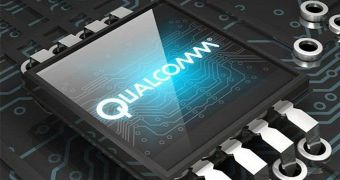Last week rumors sprung to existence regarding a baseband chip being developed in-house by Apple for use in future iDevices. Deutsche Bank analysts believe that this is almost impossible for the company to achieve in less than 5 years and that it will continue to rely on Qualcomm solutions.
Deutsche Bank maintains its Buy rating on Qualcomm, saying, “we do not feel that this recent press report affects Qualcomm’s long term prospects.”
The bank’s Brian Modoff says in a research note that recent speculation about Apple developing its own wireless radio chips is just that, speculation. Furthermore, Modoff explains it would be almost impossible for the Cupertino company to achieve this goal without close to 1,000 engineers and five years to spare.
“We dismissed this early, and felt most others would as well given the herculean task of building a multimode baseband from scratch. As most who follow the wireless industry understand, building a multi-mode baseband is not about R&D dollars,” said Modoff.
“Sure dollars will help, but it also takes time, at least five years by our count, top-notch talent leading the effort and about 1000 engineers in total – well short of the 30 positions Apple currently has posted. Instead of an organic baseband development, we believe Apple is rather trying to realize better integration with existing baseband chipsets and their apps processor, or possibly developing their own internal WiFi chipset,” he adds.
It is tempting to believe the April 7 DigiTimes report that spurred the rumor in question. On occasion, the California tech mammoth goes to great lengths to reduce its reliance on a third-party supplier in exchange for using its own, custom-built solution. One such example is the A-series chip that iPhones and iPads have been using since 2010.
Other examples include the sapphire crystal factory Apple has built for GT Advanced, the Liquidmetal license, and other technologies that it hopes to put to good use.
But there are very big advantages to building your own chips, which constitute the brains of an electronic device like the iPhone or the iPad. One primary benefit is battery life. Designing your own chips allows you to optimize them for the rest of the hardware and the underlying software of the device, making it power-efficient and fast.
Memory management is also improved as a result of these efforts. But, as Deutsche Bank notes, sometimes it takes years of research and development to get there. Apple may not want to venture into uncharted territory this time around.

 14 DAY TRIAL //
14 DAY TRIAL //